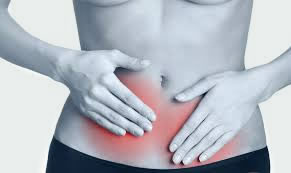Conditions & Treatments

Heavy Periods
 Heavy menstrual bleeding has a major impact on a woman’s quality of life.
Heavy menstrual bleeding has a major impact on a woman’s quality of life.
Treatment and care should always take into account the woman’s needs and preferences with good communication being at the forefront of the doctor-patient relationship.
Decisions should be supported by evidence-based information to allow you to reach informed decisions about your care. You should also have the opportunity and time to make those informed decisions about your care and treatment.
Which treatment to have, is largely based upon the initial concern that there is nothing dreadfully wrong. Quite often, initial investigation with an ultrasound scan may be advised. This test visualises the womb and also looks at the ovaries as well. It gives the opportunity the look at the thickness of the lining of the womb as well as giving information about the size and position of fibroids if present.
As part of the investigations, a hysteroscopy maybe also be suggested. This allows the surgeon to look into the womb with a telescope through the cervix to make sure all is well. A biopsy (small amount of tissue) is occasionally taken and polyps, if present, can also be removed (polypectomy).
Treatment
There are some procedures that help treat heavy periods aside from taking hormones that have often been prescribed prior to referral.
Mirena IUS - This is a medicated coil that is often fitted in the uterus at the time of hysteroscopy but can also be fitted as an outpatient. It releases a type of progesterone that acts on the lining of the womb to lighten periods, with a potential blood loss reduction of up to 65%. Approximately 20% of women are virtually period free at 1 year after a fitting. It also has the advantage of providing contraception (if needed) and lasts for around 5 years.
Endometrial Ablation (Novasure) - This is a treatment, which uses heat to treat the lining of the womb and has roughly the same success as a Mirena. This is a day case procedure with a quick recovery period.
Resection of Fibroids - Occasionally fibroids are poking into the cavity of the uterus and as they have a very rich blood supply often cause problems with heavy bleeding. Small fibroids can be removed with a hysteroscope.




